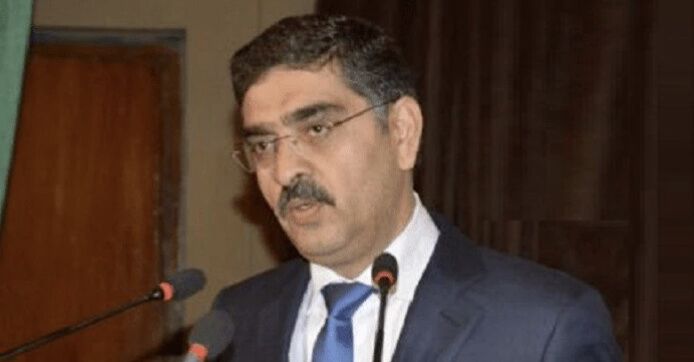Senator Anwaar-ul-Haq Kakar Becomes Interim PM of Pakistan, Faces Economic Crisis and Election Challenges
Senator Anwaar-ul-Haq Kakar appointed as interim Prime Minister of Pakistan, responsible for leading the nation and overseeing upcoming general elections. Concerns raised about military's authority and legitimacy of elections. Economic stabilization a primary challenge for the cash-trapped nation.
In a significant development, Senator Anwaar-ul-Haq Kakar has been chosen as the interim Prime Minister of Pakistan. His primary responsibility will be to lead the cash-trapped nation and oversee the upcoming general elections, which are scheduled to take place later this year.
The decision to appoint Kakar was finalized after extensive deliberations between outgoing Prime Minister Shehbaz Sharif and the Leader of Opposition Raja Riaz. The dissolution of the National Assembly by Prime Minister Sharif on August 9, three days before the mandated term, has raised questions about the timing of the elections.
According to the constitution, new electoral boundaries need to be drawn up by the Election Commission after the approval of a new census by the outgoing government. This process, which involves delineating fresh boundaries for numerous federal and provincial constituencies in a country of 241 million people, is expected to take at least six months or more.
Kakar's caretaker government has been given the authority to make policy decisions on economic matters, thanks to recent legislation. This has been done to ensure the smooth implementation of a nine-month, $3 billion bailout from the International Monetary Fund (IMF), which was obtained in June.
The IMF has already secured agreement from all political parties on the direction of policies. It is worth noting that the military still wields significant power in Pakistan. With Kakar's party, the Balochistan Awami Party, being considered close to the military, concerns have been raised about the potential strengthening of the military's authority if the caretaker arrangement exceeds its constitutional term.
Former Prime Minister Imran Khan, the main opposition leader, is currently unable to contest the elections as he is serving a three-year jail sentence on graft charges and has been barred from participating in any elections for the next five years. Khan's party, the Pakistan Tehreek-e-Insaf (PTI), will look to exploit supporters' sympathy and anger in the absence of their leader.
However, PTI's prospects may depend on establishing a détente with the military, which appears unlikely at present due to an ongoing standoff. The three main contenders to lead the next government are PTI, the Pakistan Muslim League-Nawaz (PML-N) of Shehbaz Sharif, and the Pakistan Peoples Party (PPP) led by Bilawal Bhutto Zardari.
While PTI aims to capitalize on supporters' sentiments, PML-N's Shehbaz Sharif is seen as a front runner despite a corruption conviction against his brother, three-time premier Nawaz Sharif. Bhutto Zardari, son of former prime minister Benazir Bhutto, is also considered a key candidate.
The primary challenge leading up to the elections is achieving economic stabilization for Pakistan's $350 billion economy, which has been grappling with inflation and high interest rates following economic reforms. Additionally, political uncertainty surrounding Khan's imprisonment and ban raises concerns about the legitimacy of the upcoming election.
In the event that the elections are delayed beyond the constitutionally mandated 90 days, constitutional and legal matters are expected to arise, potentially prompting the intervention of the Supreme Court.




